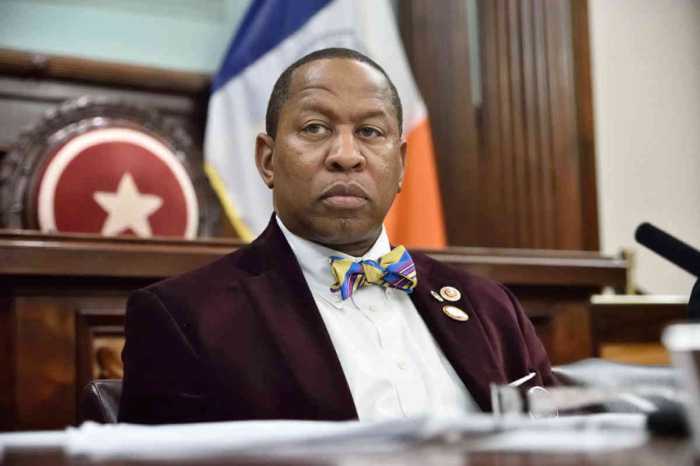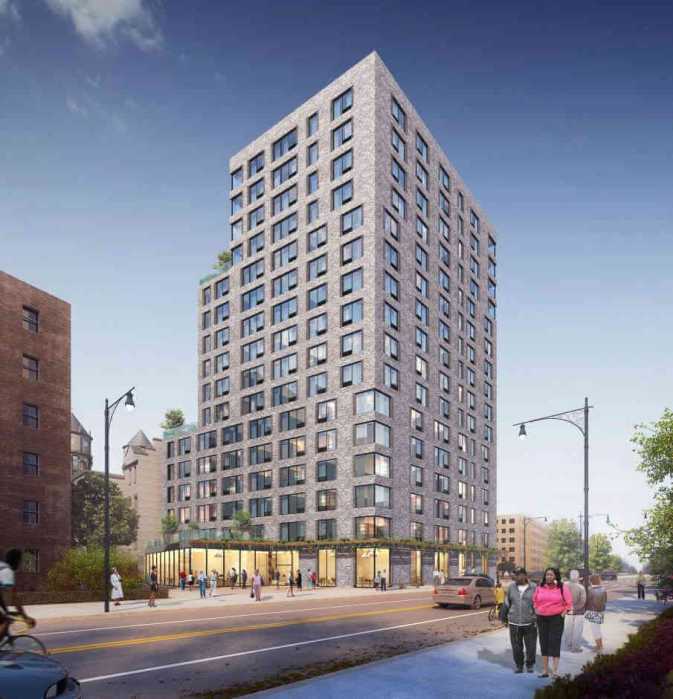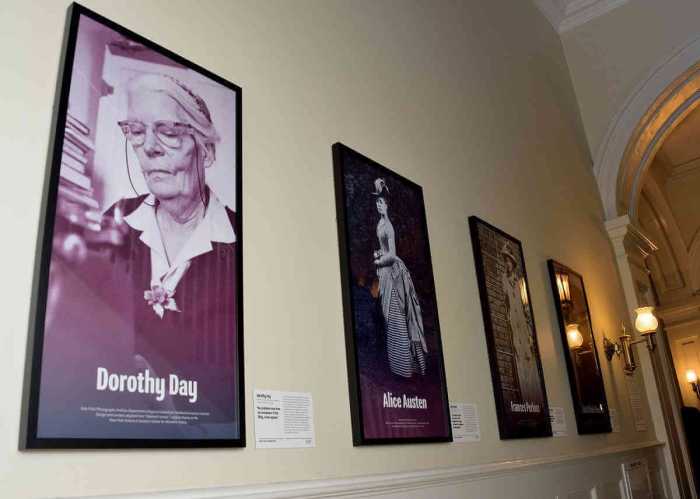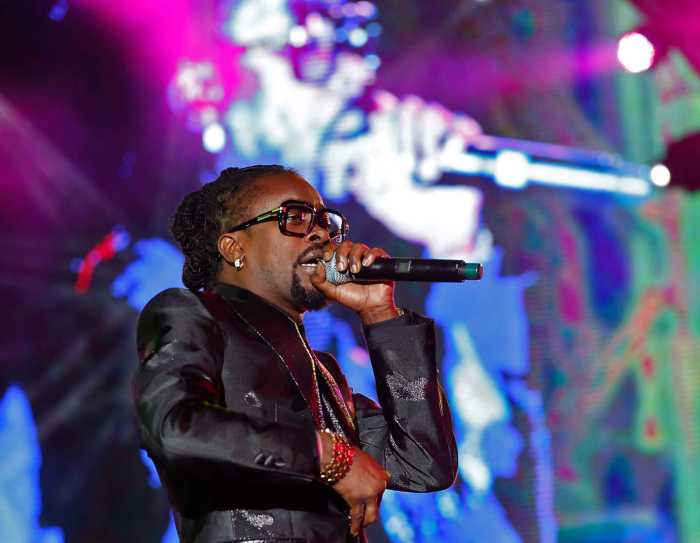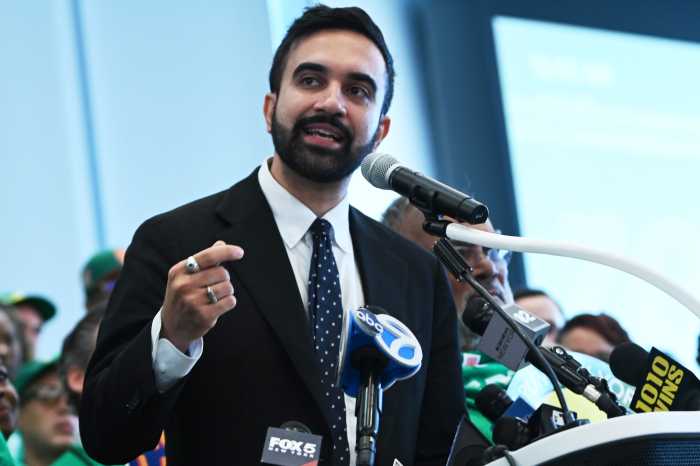In September 2017, as Bronx City Councilmember Fernando Cabrera — whose history of homophobic attacks on the LGBTQ community included a 2014 YouTube video he recorded in Uganda praising that country’s efforts to enact a draconian anti-sodomy statute that included severe prison sentences — faced a Democratic primary opponent, Gay City News noticed that his campaign website included an endorsement by Mayor Bill de Blasio.
Contacted by the newspaper, the mayor’s reelection campaign confirmed the endorsement, explaining, “Mayor de Blasio is a strong supporter of marriage equality and LGBT rights, and the Mayor has been clear about his very strong disagreement with Councilmember Cabrera on these issues.”
In other words, de Blasio and Cabrera had agreed to disagree about homophobia but otherwise enjoyed a constructive working relationship, one strong enough for the mayor to give the councilmember a boost in his reelection bid.
Five hours after Gay City published its story — just before 11 p.m. on a Friday evening — the campaign reached back out to the newspaper with the message, “Mayor de Blasio has not endorsed Councilmember Cabrera. We regret the miscommunication.”
A campaign spokesperson was never able to explain exactly how that miscommunication occurred, and it was hard to escape the conclusion that when folks on Team de Blasio saw its own response printed in black and white they recognized how other readers and voters would interpret it. The mayor could disagree with another elected official’s homophobic statements and actions but that wouldn’t prove an insurmountable disqualification of that official.
It’s inconceivable that if the issue were racism, anti-Semitism, or misogyny, for example, de Blasio or any other New York progressive would put out a statement like “the Mayor has been clear about his very strong disagreement with Councilmember XYZ on these issues.”
This incident is important to recall right now for two reasons — obviously because of the Ruben Diaz, Sr., scandal that has metastasized since Friday, but also because of reporting that this newspaper has done in recent weeks about the support several candidates for public advocate have given to Cabrera, Diaz, and Brooklyn’s Chaim Deutsch.
In a series of recent stories, Gay City News’ Matt Tracy reported that, contrary to answers they gave on a questionnaire from the Stonewall Democratic Club, both Brooklyn Councilmember Jumaane Williams and former Speaker Melissa Mark-Viverito had donated to and/ or endorsed officials with homophobic records. Williams donated to Cabrera and Deutsch in 2017, and Mark-Viverito gave Deutsch money in 2013 and then endorsed him in a contested 2017 primary. Separately, Tracy reported on the increasingly close ties between another public advocate candidate, Upper Manhattan’s Ydanis Rodriguez, and both Diaz and Cabrera.
Rodriguez already faced fallout from LGBTQ political clubs in 2017 for his support for Diaz’s City Council run and has presumably given up on currying queer political support. He made no noise about our coverage of his political alliances.
Williams and Mark-Viverito, however, are both aggressively courting the LGBTQ vote and their campaigns and Twitter accounts firmly pushed back on Tracy’s reporting. Complaints from both camps suggested that the newspaper was playing “gotcha” with candidates who whole-heartedly support the LGBTQ community.
At Stonwewall, Mark-Viverito, explaining she did not know that Deutsch had tarred his 2013 opponent as being an advocate of the gay “agenda,” went so far as to say Gay City News hadn’t reported that incident. As though that cleared her of responsibility for vetting candidates she gives money to. One of her campaign staffers said that Deutsch’s 2017 vote against a ban on conversion therapy came after she had endorsed his reelection. But that endorsement followed four years in which she was speaker and Deutsch several times cast anti-LGBTQ votes. He was among a handful of councilmembers who did not place a Rainbow Flag on his desk as the chamber paid their respects to the victims of the June 2016 Pulse nightclub massacre. It’s frankly disingenuous of Mark-Viverito to claim she didn’t know the nature of Deutsch’s views about our community.
Williams responded somewhat more forthrightly to Tracy’s story about the Stonewall questionnaire, apologizing in front of the club for what he characterized as an oversight in answering the question and pledging to donate amounts equal to the Cabrera and Deutsch contributions to LGBTQ organizations. His campaign — and he himself — were far less willing to own up to his actions when we reported that, asked twice in a NY1 News debate about his previous reluctance to embrace abortion rights and marriage equality, he both times made clear he supports a woman’s right to choose but did not mention gay marriage either time. Williams took particular umbrage at our use of the word “dodges” in that regard.
Mark-Viverito can rightly be proud of her long and strong support for LGBTQ rights, but she also seems to have at times adopted the posture that the de Blasio campaign clung to briefly that September evening in 2017. For whatever reason, Deutsch was politically important to her, and it’s hard to believe she didn’t look the other way about his views on LGBTQ equality.
Williams has evolved more slowly, and he has been honest about having changed his thinking. But during the same period in late 2017 when he persuasively talked to Gay City News about his change of heart, he was giving money to Cabrera and Deutsch. That contradiction deserves to be discussed as he runs for public advocate.
But our community can’t hold straight allies to standards we ourselves don’t maintain. In that regard, Speaker Corey Johnson bears special responsibility. As he prepared his bid for the speakership, Johnson courted Diaz assiduously, visiting him twice in the hospital. At a 2017 Christmas event just weeks prior to the new Council electing Johnson, the two gushed over their mutual admiration even as they noted obliquely that they don’t agree on everything.
Diaz’s infamous Spanish language radio comments last week, in an important respect, blew up in Johnson’s face, with the Bronx councilmember clearly suggesting that his support — and that of the Bronx delegation — for Johnson came in return for the creation of a new committee for him to chair. Dissolving that committee as punishment of Diaz certainly did nothing to counter that narrative.
Speaking to the press after the Council took Diaz’s committee away from him, Johnson expressed regret over “blind spots” we all have in life. There is little ambiguity in Ruben Diaz, Sr.’s history of homophobia. So it’s hard to believe that a blind spot on that score was not willful blindness. Our community deserves better from all elected officials, straight and otherwise.

